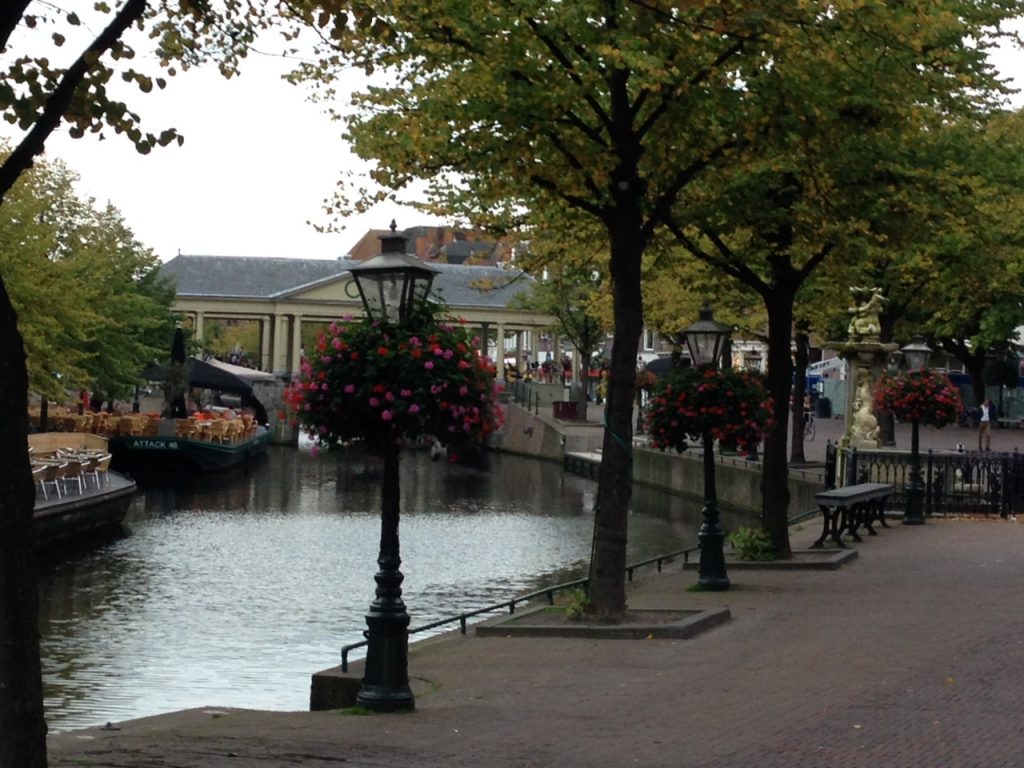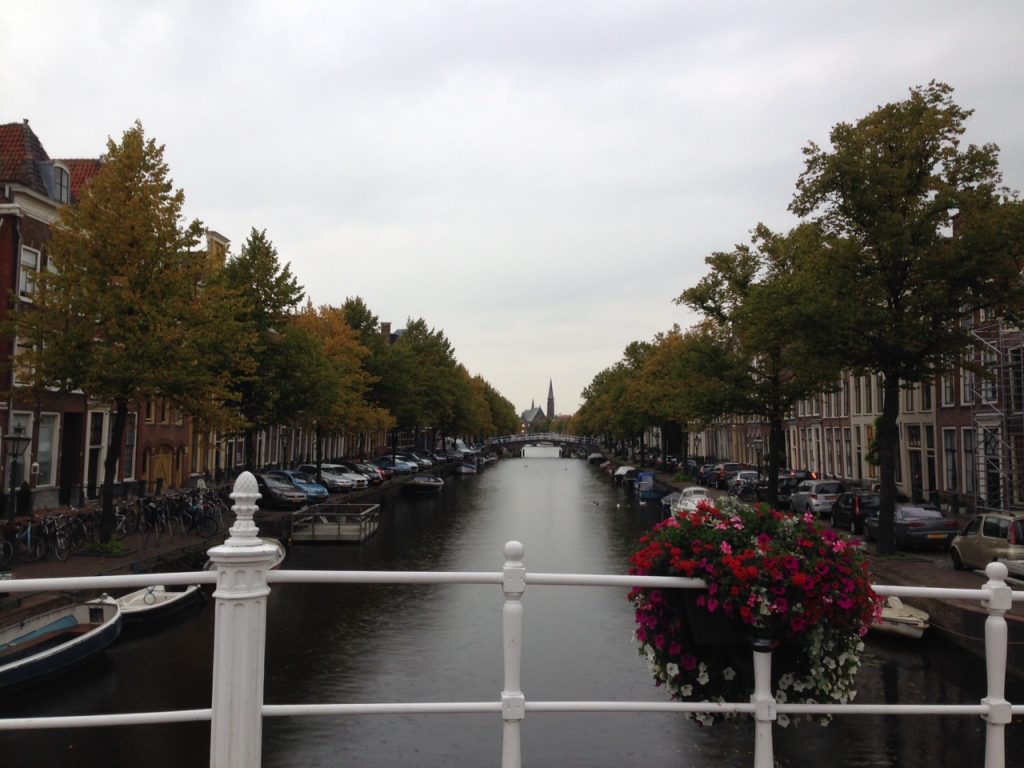During the year I spent in Leiden (2015-16) I did almost nothing that would count as academic productivity. In fact I cannot think of any other postdoctoral researcher, who I have met or have heard of, less productive than me during that year.
It wasn’t that I didn’t have ideas. I had many ideas, enough to keep a team of 4-5 students busy. But I no longer identified with the ideas. The ideas were coming from a place that now seemed foreign.

The first indication of my growing detachment was my loss of appetite for article writing. Data set after data set were being collected. And I simply couldn’t write a new article. I knew how to write articles. The process had become somewhat algorithmic. But I couldn’t go through the motions of the algorithm. I still revised and resubmitted older work, but writing new ones felt unnecessary, unpleasant, un…something . It was like eating when you’re too full. The result is nausea. So I decided to take my lost appetite seriously. Soon after the loss of writing appetite, I began dismissing those ideas at earlier stages.
I imagine this must be similar to how an actor, say, Steve Carrell feels like after playing the character Michael Scott for so many years. He is good at it, sure. He can continue, easily. But he is also bothered by the gap between himself (Steve) and the role (Michael). Not that I want to compare myself to the great and masterful Steve Carrell, but I think there is similarity in the forms of discontent, the lost appetite, and the nausea.
But I was still writing. Quietly. Invisibly. And, of course, “unproductively”. For a period of few months I wrote every evening after coming home from the university. I wrote about my uneasiness. About missing my friends and family in Toronto. About the emptiness and uselessness of my doctoral dissertation, and for that matter, most of academic psychology. About the new fads and trends in academic psychology and how I couldn’t care any less. I also wrote about my new discoveries, including the field(s) of theoretical psychology, which gave me much hope at the time. I wrote about the new writers I was slowly discovering. Amedeo Giorgi, Fiona Hibberd, Jan Smedslund, and many more.
Writing allowed me to see and think more clearly, and to be able to make small day-to-day decisions.
I kept writing in a document that I named MyDaysinLeiden.docx. The writing had practical consequence. It was that writing that helped me stay “unproductive”. It was that writing that helped me decide to leave Leiden. It was that writing that allowed me to write and re-write, “Behaviour versus performance” (which essentially signaled a change in my career path, away from a cookie-cutter “experimental psychologist”). It helped me gain the capacity to say goodbye to a former role that had become alienating and suffocating.
The other night I opened the document again after almost 5 years, looking at My Days in Leiden. It contains over 40,000 words. I am not sure what to do with it. But I might spend some time with it, maybe looking at it with the eyes of an editor and asking if I can find something “worthwhile” in it. The question of public worth is difficult and requires being a little more presumptuous (or imaginative?).

I searched a bit in my email for photos from those days to add to this post. And I also found this email sent to a friend:
July 4, 2016
Your fourth and last postcard to Leiden arrived today. I have exactly 6 more weeks left before my departure. As I was biking to work this morning, I started thinking what “6 more weeks” means.
It means 6 more Monday-to-Friday at my office at FSW in Leiden University, 6 more trips to the laundromat near my building, 6 more trips to the grocery store (Albert Heijn). It means having around 6 more dinner with my friends/colleagues here, around 6 more walking conversations with my good friends Bruno, Roberta, and Bryant, and 2 more meetings of the reading group I have organized here. It means 1 more haircut at my usual hair salon near Leiden Central Station, preparing 3-4 lectures for my courses in the coming fall semester. And it means adding a few more paragraphs to my writing collection, My Days in Leiden.
These are the “solid metronomes of the human spirit”. I have developed them in the past 9-10 months. I am mesmerized by the gentle swings of these little metronomes. I surf on them, emotionally. When I am tired or unmotivated, they simply push me forward. Leaving Leiden feels like a part of my heart is getting removed, which might have the fortunate effect of leaving me a little less sentimental. These days, I am relying more and more on the automatic movements of the metronomes that I have already – thankfully – set in motion.
Yours, Davood
Hi Davood,
Not sure if you have left this comment function here intentionally for this purpose, but since I accidentally wandered to this page and read through your whole blog article, I decided I must leave a comment to say thank you SO MUCH for publishing this blog. Many thoughts are really intriguing for me. I’ve been wandering and “unproductive” recently too, thinking a lot about theoretical psychology (more precisely and in my case, theoretical cognitive science and nature of mind). On the edge of PhD, I found many of the experiences relatable. How do you reconcile deeper interest of mind and science versus the more publishable and concrete research topics? How would you recommend choosing PhD program and research area? And what is your motivation for pursuing PhD and how do you see this career path so far?
I know this is probably too many questions all at once, but in case you might be happy to chat, I would be really delighted and honored. Regardless, THANK YOU so much for publishing this.
Your former Macau student,
Grayson
Your former student
Thank you for your comment, Grayson. Those are important questions and I’m afraid I don’t have quick answers to them. I will only reiterate what Michael Billig told me in 2015: “Be brave and do things for their own sake rather than because you think they will be useful for your ‘career’. Above all try to read widely. By reading widely, you can ‘meet’ some extraordinary thinkers.” (from the interview: https://dgozli.com/interview-with-michael-billig/)